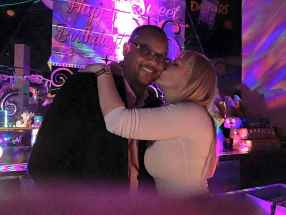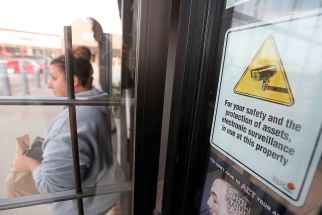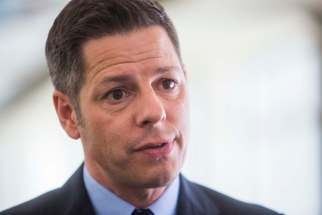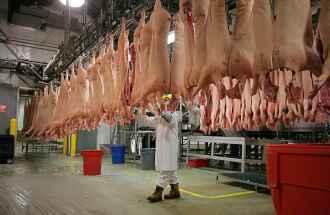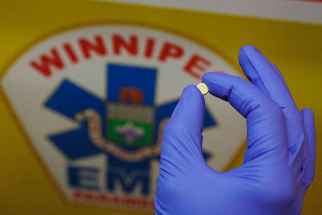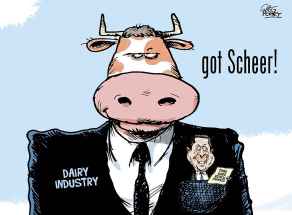Concern raised about Liquor Marts moving toward facial recognition
Read this article for free:
or
Already have an account? Log in here »
To continue reading, please subscribe:
Monthly Digital Subscription
$0 for the first 4 weeks*
- Enjoy unlimited reading on winnipegfreepress.com
- Read the E-Edition, our digital replica newspaper
- Access News Break, our award-winning app
- Play interactive puzzles
*No charge for 4 weeks then price increases to the regular rate of $19.00 plus GST every four weeks. Offer available to new and qualified returning subscribers only. Cancel any time.
Monthly Digital Subscription
$4.75/week*
- Enjoy unlimited reading on winnipegfreepress.com
- Read the E-Edition, our digital replica newspaper
- Access News Break, our award-winning app
- Play interactive puzzles
*Billed as $19 plus GST every four weeks. Cancel any time.
To continue reading, please subscribe:
Add Free Press access to your Brandon Sun subscription for only an additional
$1 for the first 4 weeks*
*Your next subscription payment will increase by $1.00 and you will be charged $16.99 plus GST for four weeks. After four weeks, your payment will increase to $23.99 plus GST every four weeks.
Read unlimited articles for free today:
or
Already have an account? Log in here »
Hey there, time traveller!
This article was published 24/07/2019 (2329 days ago), so information in it may no longer be current.
Manitoba Liquor and Lotteries says it doesn’t need a person’s name, only their face, to ban them from Liquor Marts; prompting concerns the Crown corporation is moving toward controversial facial-recognition technology.
Clark Searle questioned how he could be banned from all Liquor Marts in the province after making a purchase at the Osborne Village store on Friday. He was handed a form letter, which didn’t bear his name, as he left the store.
Refused service or banned
Almost 19,000 Manitobans were refused service at Liquor Marts due to intoxication in the last fiscal year, but Manitoba Liquor and Lotteries does not track the number of people banned from its stores.
Almost 19,000 Manitobans were refused service at Liquor Marts due to intoxication in the last fiscal year, but Manitoba Liquor and Lotteries does not track the number of people banned from its stores.
Clark Searle, who received a form letter on Friday telling him not to return to any Liquor Mart until he’d called corporate security to discuss his “conduct” during an undisclosed previous visit, wonders how many other customers have been banned.
In an emailed statement Wednesday, Manitoba Liquor and Lotteries said because disturbances often include “escalated” tempers or patrons quickly leaving the store, it can be difficult to hand out letters immediately.
“We record and track the incidents where there was a significant disturbance or a theft but we do not have the means to count how many of the incidents have had related exclusions issued by store staff,” said Andrea Kowal, director of communications and corporate affairs. “Our Liquor Marts handle more than 11 million transactions annually; only a fraction of those visits results in an exclusion letter being issued.”
The number of patrons who are refused service because of intoxication is tracked.
“The high number of refusals due to intoxication at all stores, 18,690 in 2017-18, shows how dedicated our employees are to selling our products responsibly,” Kowal said.
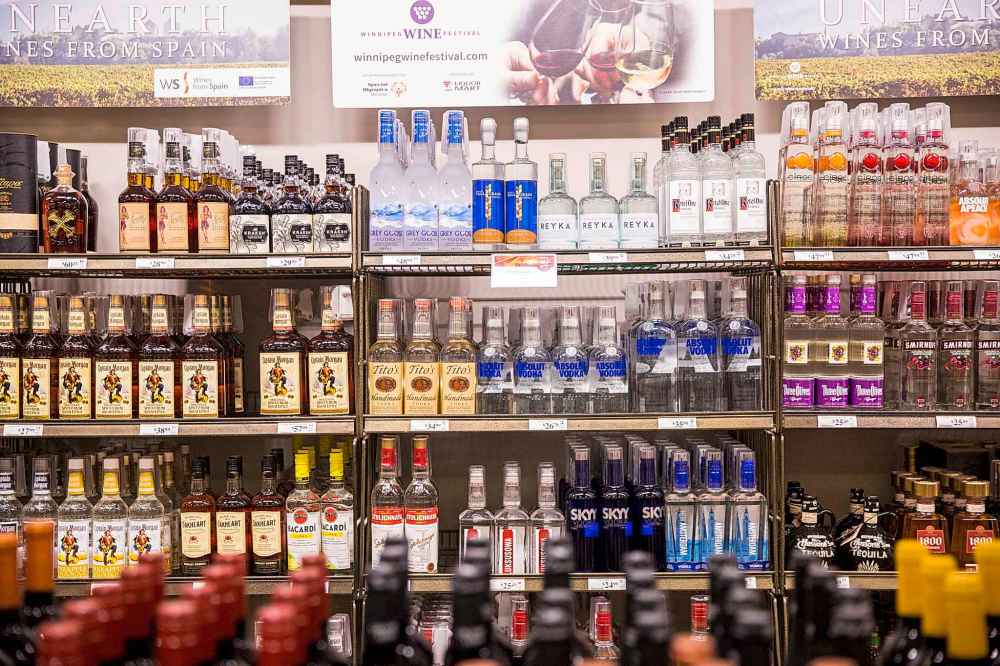
“While our corporate security department has explored several options for facial-recognition software, we aren’t currently using it in our Liquor Marts,” said Andrea Kowal, director of communications and corporate affairs, in an emailed statement.
“We do have state-of-the-art digital surveillance in all our stores which capture high-definition images from many angles, and a dedicated team of trained security professionals who review, document and track incidents,” she said.
While people are used to being on camera, Searle’s story shows a lack of accountability with what’s caught on surveillance, said Neil McArthur, director of the centre for professional and applied ethics at the University of Manitoba.
“We just want to make sure they’re doing this in a way that is responsible,” he said. “They need to be very open, very transparent and very accountable about the techniques they’re using to deal with these challenges. Because this is a public company. We should all know what their policies are.”
He questioned whether the images are shared with police. In March, the Crown corporation issued a news release outlining security changes in the wake of a rash of thefts. It said surveillance video would be shared with police.
A news release issued by the Manitoba Government and General Employees’ Union, which represents Liquor Mart employees, on the same day, said facial recognition would be used as part of those security changes.
“This is a publicly owned company,” McArthur said. “They have to tell the public what they’re doing.”
A privacy expert questioned how a ban, such as the one imposed on Searle, could be feasibly enforced without the use of facial recognition.
“I don’t how how they could do it, because they have to capture some data on which they’re basing the ban. You have to have some evidence, you can’t just say ‘I don’t like this guy, I’m kicking him out,’” said Ann Cavoukian, Ontario’s former privacy commissioner.
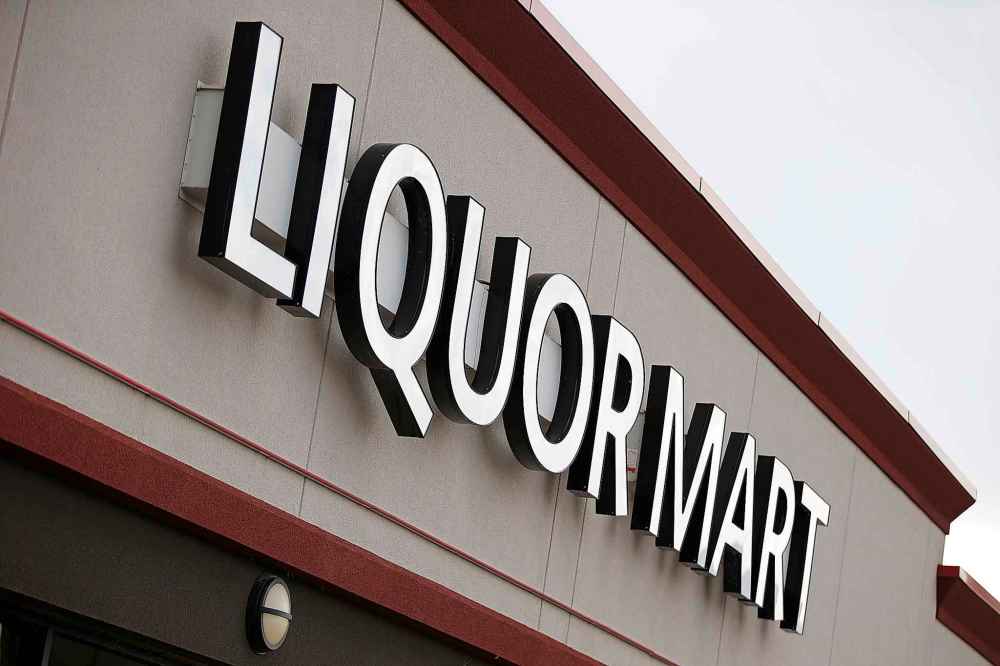
“What if they have the wrong person? What about 100 things?” she said.
Cavoukian, who is also executive director of the Global Privacy & Security by Design Centre, is concerned about the erosion of privacy in a world that is increasingly under surveillance.
When angry customers learned Cadillac Fairview malls were using facial recognition — they did not confirm that CF Polo Park was among them — the federal privacy commissioner launched an investigation and the malls suspended the use of the technology.
“They just put a stop to it because people were so upset about it,” Cavoukian said.
Manitobans get facial-recognition scans when they apply for a driver’s licence or other identification from Manitoba Public Insurance. A pamphlet on MPI’s website states there is a database that is used to prevent people from getting multiple ID cards or stealing someone’s identity.
Cavoukian cautioned that “facial recognition is not ready for prime time,” pointing to a high number of false positives. Capturing angles, as the Manitoba Liquor and Lotteries system does, has been especially important in recent years.
“The last thing you want is your most sensitive biometric, your facial image, to be captured in this way,” Cavoukian said.
The website of Canada’s privacy commissioner states that people should be notified if facial-recognition software is in use, and that it should be used to authenticate people, not identify them.
Currently, many Liquor Mart entrances have decals indicating video surveillance is being used.
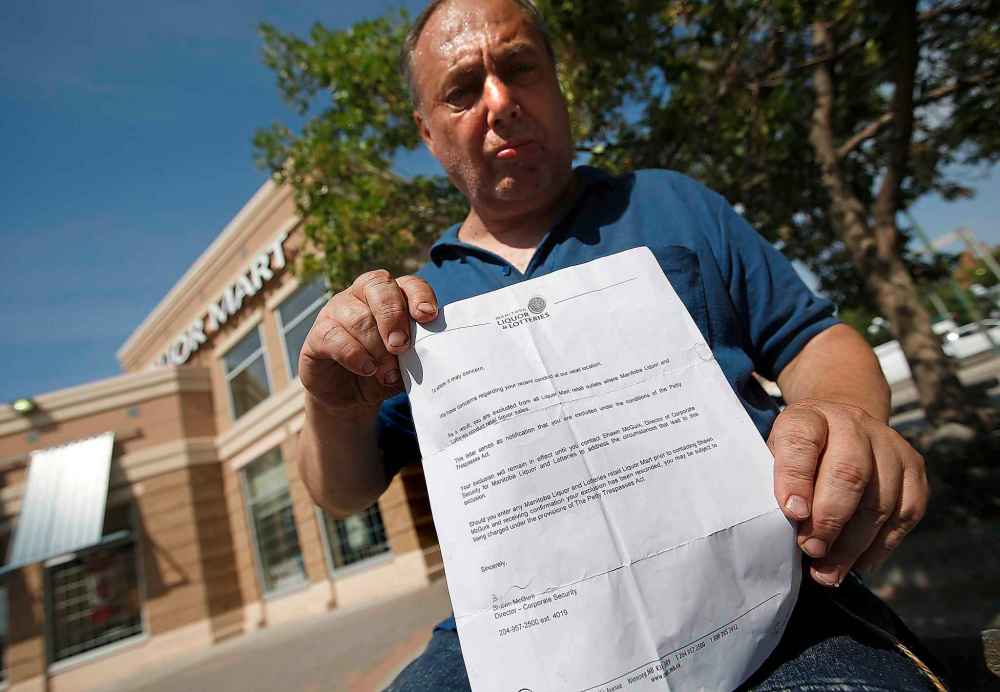
On Tuesday, Manitoba Liquor and Lotteries said that surveillance will be used to enforce the ban on Searle.
“Businesses have very broad scope to ban customers, but ethically, what really raised red flags for me was the fact that, first of all, this seems to be based on people’s appearances, based on photographs as far as we can tell,” McArthur said.
Searle said he doesn’t know why he has been banned. He wants an apology, and he doesn’t want Manitoba Liquor and Lotteries to have any more information about him.
“I’m not going to put my name on a list. I haven’t done anything wrong,” Searle said.
tvanderhart@freepress.mb.ca
Twitter: @tessavanderhart




